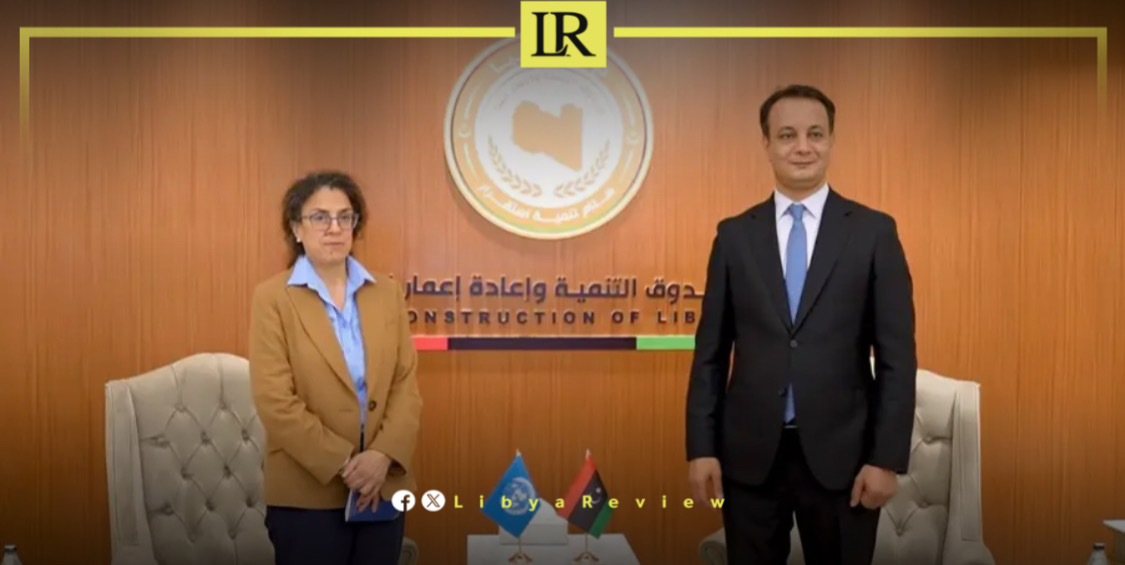On Monday, the Acting Head of the United Nations Support Mission in Libya (UNSMIL), Stephanie Khoury, praised the efforts of the Libyan Development and Reconstruction Fund (LDRF) in advancing stability and peace across the country.
During a meeting on Sunday with the Director-General of the LDRF, Belgassim Khalifa Haftar, and members of the fund’s team, Khoury expressed her appreciation for the fund’s swift and impactful reconstruction projects. These initiatives have played a significant role in fostering stability in numerous Libyan cities and regions affected by conflict.
According to a statement from the LDRF, Khoury acknowledged the organization’s commitment to rapid and effective action, emphasizing the importance of these efforts in achieving peace and stability. However, the statement did not elaborate on further details discussed during the meeting.
The LDRF has been instrumental in rebuilding vital infrastructure and addressing critical post-conflict needs. From housing and healthcare facilities to schools and water systems, the fund’s reconstruction projects have laid the groundwork for sustainable development and long-term recovery.
In a prior engagement in June, Belgassim Khalifa Haftar provided Khoury with a detailed overview of the fund’s strategy. He outlined the phased approach to reconstruction, which prioritizes addressing urgent humanitarian challenges before transitioning to comprehensive development programs aimed at fostering social and economic resilience.
Khoury’s recent recognition reflects the international community’s support for Libya’s ongoing reconstruction efforts. UNSMIL continues to advocate for initiatives that enhance governance, encourage inclusive dialogue, and promote economic stability as Libya navigates its transitional period.
Despite the progress made, challenges such as political fragmentation and limited resources persist. However, the LDRF’s achievements have underscored the potential for well-coordinated and community-focused reconstruction to drive meaningful change in post-conflict environments.
By bridging gaps in infrastructure and rebuilding communities, the LDRF has emerged as a cornerstone of Libya’s recovery process, with its projects drawing praise both locally and internationally.


